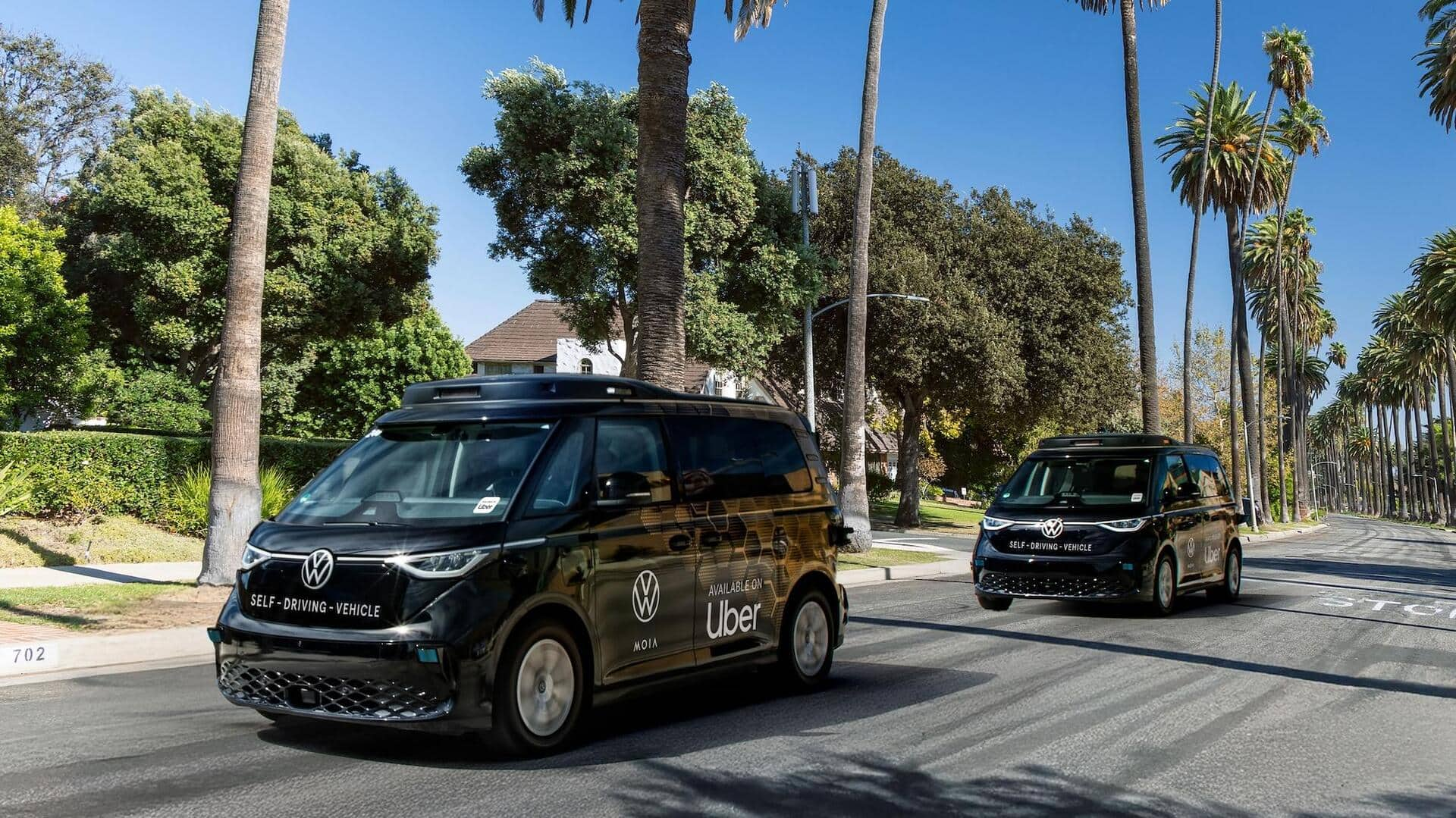
Uber, Volkswagen join forces to launch robotaxi service in US
What's the story
Uber and Volkswagen have teamed up to launch a commercial robotaxi service in several US cities over the next 10 years.
The service will be based on autonomous electric VW ID. BUZZ vehicles, with Los Angeles being the first city to host it by late 2026.
Initially, human safety operators will be behind the wheel of these autonomous vehicles before going fully driverless in 2027.
Testing phase
Volkswagen ADMT gears up for autonomous vehicle testing
Volkswagen ADMT, the autonomous vehicle arm of Volkswagen of America, is gearing up to tackle California's regulatory hurdles and obtain permits to test its autonomous vehicles.
The company plans to start testing in Los Angeles later this year after receiving an initial testing permit from the California Department of Motor Vehicles.
Although it has a long way to go, this partnership is a major leap for Volkswagen ADMT.
Journey
Volkswagen's autonomous vehicle journey and future plans
Volkswagen ADMT went public in July 2023 with an autonomous vehicle test program in Austin, Texas.
The company started testing autonomous Buzz vehicles there last year after years of trials in Germany.
Although it had previously claimed it wasn't interested in building a dedicated ride-hailing service, Volkswagen seems to be heading that way with its partnership with Uber.
AV partnerships
Uber's extensive partnerships in autonomous vehicle sector
Uber has been actively partnering with over 14 autonomous vehicle companies across ride-hailing, delivery, and trucking domains. The company's latest collaboration with Volkswagen is also a part of the same strategy.
Uber recently launched a robotaxi service with Waymo in Austin and plans to do the same in Atlanta soon. This partnership further solidifies Uber's position in the growing autonomous vehicle industry.
Debut plans
Volkswagen's autonomous vehicles to debut on Uber's platform
Volkswagen will deploy its all-electric ID Buzz minivans for autonomous ride-hailing in the US.
The vehicles will be outfitted with self-driving sensors and software from subsidiary Moia.
Notably, the long-wheelbase version of the Buzz can accommodate at least seven passengers, showing Volkswagen's intent to make the most of its ride-hailing potential.